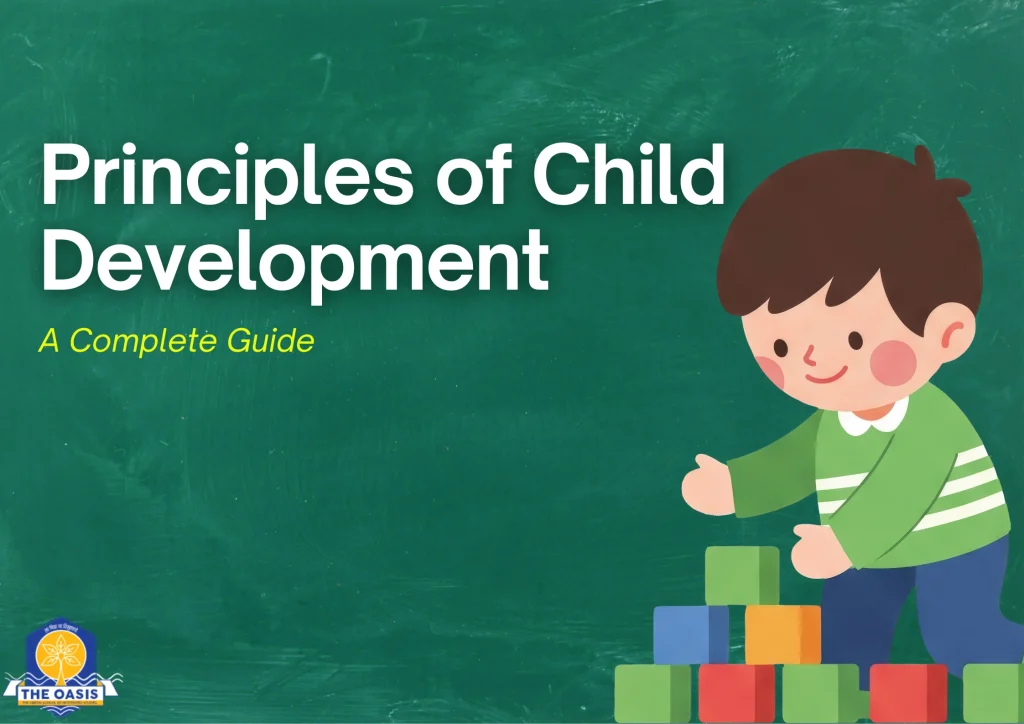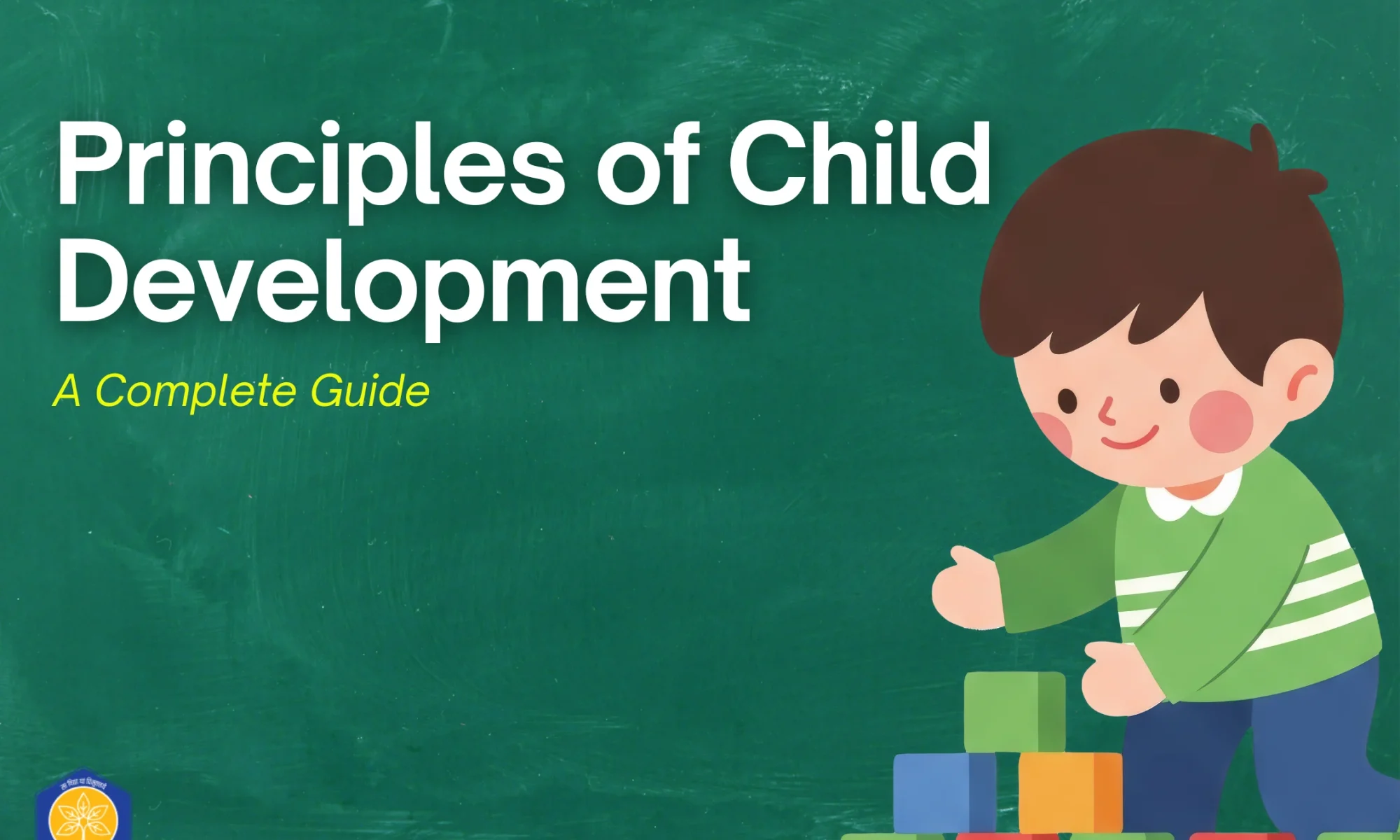
Every child grows at their own pace, yet specific patterns guide their journey from infancy to adolescence. These guiding patterns are known as the principles of child development. For parents and educators, knowing these principles is essential because they provide insight into how children learn, behave, and adapt. By understanding these foundations, you can support children in achieving their full potential not only academically but also socially, emotionally, and physically.
What Are the Principles of Child Development?

The principles of child development are universal truths about how children grow and learn. They explain why children progress in specific sequences, why some skills come earlier than others, and why multiple factors influence development.
Key Principles of Child Development:

1. Development Proceeds in an Orderly Sequence
Children typically develop skills in a predictable order. For example, a baby learns to roll before sitting, and sitting before walking. This shows that development is sequential.
2. Each Child Develops at Their Own Pace
While the sequence is consistent, the pace may differ. Some children walk at 10 months, while others take their first steps at 14 months. Recognizing this avoids unnecessary pressure.
3. Development is Holistic
The principles of child development emphasize that growth is interconnected. Physical, cognitive, emotional, and social development influence one another.
4. Development is Continuous
Child development is not sudden, it is a continuous process. Skills are built gradually over time.
5. Early Development is Crucial
The early years set the foundation for later learning. Brain development in the first five years is significant for shaping intelligence and behavior.
6. Growth Follows Cephalocaudal and Proximodistal Patterns
Children gain control from head to toe (cephalocaudal) and from the center of the body outward (proximodistal). This explains why babies first learn head control before using their fingers.
7. Environment Plays a Key Role
While genetics influences growth, the environment, nutrition, education, and emotional support play a critical role in shaping development.
8. Learning Happens Through Interaction
Children learn best through play, exploration, and social interaction. This principle underlines the importance of experiential learning.
9. Development is Influenced by Culture
Cultural values and traditions shape how children perceive the world, their responsibilities, and their relationships.
10. Development is a Product of Maturation and Experience
Both biological growth (maturation) and real-life experiences influence how children develop.
Why is Understanding the Principles of Child Development Important?

- Helps parents set realistic expectations
- Enables teachers to design age-appropriate learning activities
- Supports emotional and social well-being
- Encourages a balanced approach to growth rather than focusing only on academics
How Schools Apply the Principles of Child Development?
Schools integrate these principles by:
- Designing age-appropriate curricula
- Encouraging both academic and extracurricular participation
- Creating safe and supportive environments
- Recognizing the individuality of each child
CHECK OUT: Which is the best boys boarding school in Dehradun?
Why Principles of Child Development Are Better Than Rigid Academic Focus?
Unlike methods that only value grades, the principles of child development highlight whole-child growth. Children who develop holistically are more likely to be confident, adaptable, and successful in the real world. They not only excel in exams but also in leadership, creativity, and life skills.
Looking Ahead:
By embracing the principles of child development, parents and teachers prepare children for more than academic success. They prepare them for life. When children are supported holistically, they grow into resilient, empathetic, and capable individuals ready to take on the challenges of the future.
Frequently Asked Questions (FAQs)
Ques 1. What are the principles of child development?
Ans. They are universal guidelines explaining how children grow physically, emotionally, socially, and intellectually.
Ques 2. How does environment affect child development?
Ans. Nutrition, family support, and schooling play a major role in shaping development.
Ques 3. Why is early childhood important in development?
Ans. The first five years shape brain growth, behavior, and learning ability.
Ques 4. How do schools support child development?
Ans. Through age-appropriate curricula, sports, arts, and emotional support.
Ques 5. How does play help child development?
Ans. Play encourages creativity, problem-solving, and social skills.




